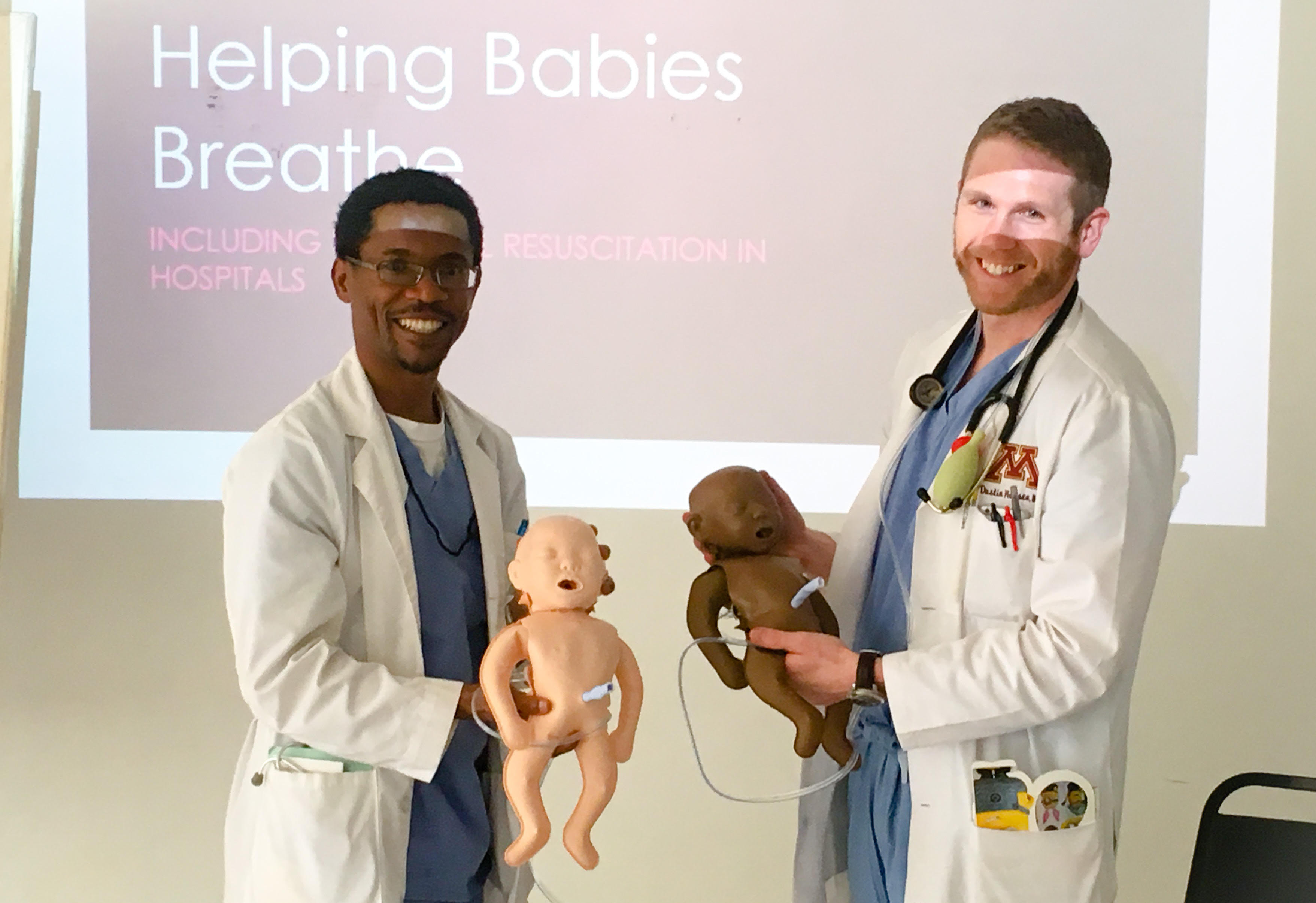Global Pediatrics Track for Residents
Focused Global Health Resident Education for Your Career of Service In Underserved Areas of the World
The Global Pediatrics Track is a combination of competency-based curriculum, evening programming and elective experiences designed to give pediatric and medicine-pediatric residents a breadth of knowledge and skills for medical service for underserved children in or from low-resourced areas of the world. Residents who complete the criteria for the track, earn a certificate in Global Pediatrics at the end of their training.
Clinical Service At Home and Abroad
A large part of the global pediatric curriculum is the elective clinical experience. Opportunities to travel on international elective are available at partner sites. Opportunities closer to home include electives in Native American communities, local electives in immigrant and refugee health, or international adoption medicine.
Competency-based Curriculum
In 2008 a collaborative group with faculty from the University of Minnesota, Department of Pediatrics, the University of Minnesota, College of Education and Human Development, and the Makerere University Department of Pediatrics and Child Health in Kampala, Uganda, developed a competency-based global child health training program for pediatric resident training. This document has been widely distributed and adapted by numerous global health residency programs across the U.S. as a model of global health residency training.
Global Health Knowledge Test
Developed by: University of Minnesota global child health specialists Dr. Cindy Howard and Dr. Tina Slusher, with the consultant advice of medical education specialist Dr. Sophie Gladding. Vetted by global health and resident education experts at University of Wisconsin-Madison, Medical College of Wisconsin, Mayo Clinic, Makere University, Florida State University, Emory University and the AAP Section on International Child Health. This global child health knowledge test is available for use by any interested University-based global pediatrics program. You are permitted to ADD questions as necessary to test your curriculum, but we ask that you do not subtract or alter existing questions.
Access to the download link requires the completion of a short survey about your plans for use of the test and the opportunity to partner with the Univerity of Minnesota in using this test for your global health residency education program. Please email Cindy Howard drcindy@umn.edu, to receive the download link.
Because we believe that much of global health starts at home, much of the global child health curriculum is delivered during block education sessions held monthly. In this way, all residents, not just those who desire a special focus in global health, receive education, particularly on the care of immigrant and refugee patients they might see in their U.S.-based practice. Additional core components include:
- Evening event programming (10/year)
- Mentoring
- Clinical experiences/electives
The clinical/elective experiences offered by our program include:
- International electives
- Native American community electives
- Local Global Health elective (Clinical experience in clinics that serve large populations of immigrants and refugees)
- Adoption Medicine elective
- American Society of Tropical Medicine and Hygiene CTropMed® (ASTMH) Certification Course (Department of Medicine)
Domestic Sites:
- American Indian health, Lakota community, Rosebud, SD
- American Academy of Pediatrics, advocacy intership, Washington, DC
- Public Health Services, Anchorage, AK
Local Global Health Sites:
- Adoption Medicine Clinic
- American Society of Tropical Medicine and Hygiene CTropMed® (ASTMH) Certification Course (Department of Medicine)
- Hennepin Healthcare, Travel, Immigrant, and Refuge Healthcare
- Minnesota Department of Health
- Migrant Health
International Sites:
- Bolivia
- Cambodia
- Haiti
- Laos
- Nigeria
- Tanzania
- Uganda
